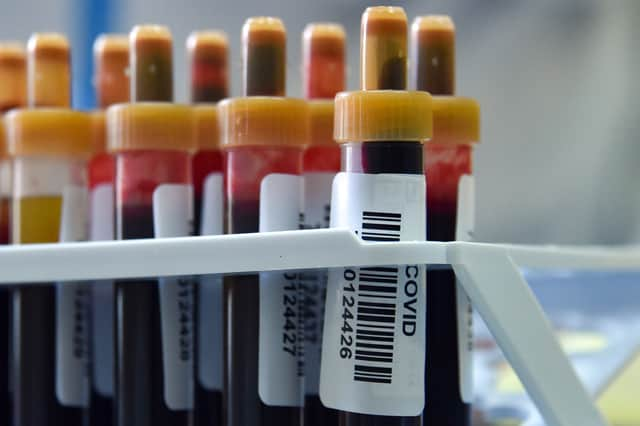Blood tests: new revelation can tell you are ageing fast or slowly


This article contains affiliate links. We may earn a small commission on items purchased through this article, but that does not affect our editorial judgement.
Scientists believe that running a blood test to check how fast a person's internal organs are ageing and even predict which ones might soon fail.
Stanford University researchers say they can monitor 11 body parts including major organs of the heart, brain and lungs. The team ran the blood tests on thousands of adults, mostly-middle or older and found one to two in every 100 might have several organs that test older than their birthday years, and although it sounds scary, it could be an opportunity to intervene and deal with any health issues that may arise, researchers say in their published paper in the journal Nature.
Advertisement
Hide AdAdvertisement
Hide AdThe researchers also found that having one or more organs ageing fast was linked with a higher risk of certain diseases and death over the next 15 years. Thousands of protein levels and their patterns are checked - as they are specific to particular proteins. The researchers then trained a machine-learning algorithm to make the predictions using lots of blood test results and patient data.
The body parts they checked include:
- Brain
- Heart
- Liver
- Lung
- Intestine
- Kidney
- Fat
- Blood vessels (arteries)
- Immune tissue
- Muscle
- Pancreas
One of the investigators, Dr Tony Wyss-Coray, explained: "When we compared each of these organs' biological age for each individual with its counterparts among a large group of people without obvious severe diseases, we found that 18.4% of those aged 50 or older had at least one organ ageing significantly more rapidly than the average. And we found that these individuals are at heightened risk for disease in that particular organ in the next 15 years."
The University has submitted the paperwork to patent the test so it can be used and sold in the future.
Some of Dr Whyss-Coray's earlier work suggests the biological ageing process is not steady, but instead comes in bursts with some rapid acceleration in people's mid-30s, early-60s and late-70s.
Advertisement
Hide AdAdvertisement
Hide AdDr Wyss-Coray said: "If we can reproduce this finding in 50,000 or 100,000 individuals it will mean that by monitoring the health of individual organs in apparently healthy people, we might be able to find organs that are undergoing accelerated ageing in people's bodies, and we might be able to treat people before they get sick."
Comment Guidelines
National World encourages reader discussion on our stories. User feedback, insights and back-and-forth exchanges add a rich layer of context to reporting. Please review our Community Guidelines before commenting.
